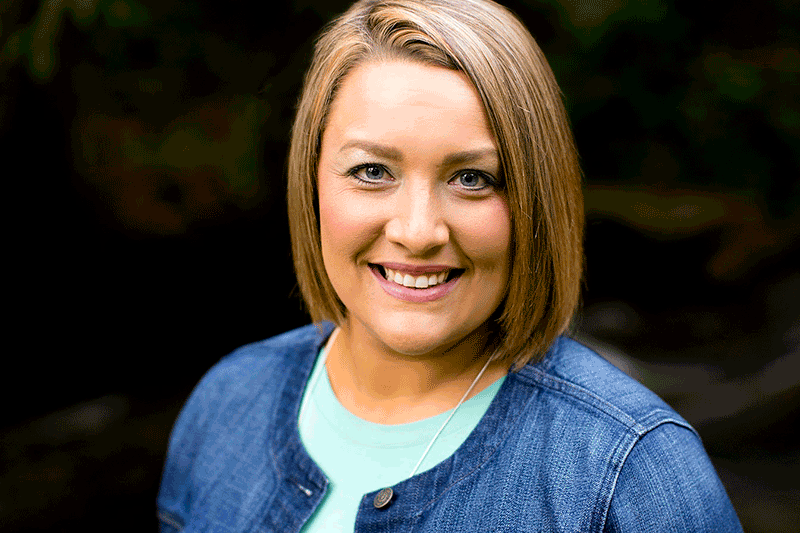
Krystle Merry taught secondary special education mathematics for 11 years. During this time, she recognized that many educators in school systems were often undertrained in special education, leading to high turnover rates and some students not receiving consistent services to be successful after graduation.
Hoping to help expand special education preparation programs in higher education institutions so that future special education teachers can gain the necessary advanced skills, she decided to pursue a doctorate at the U of A.
"I want to help support both secondary general education and special education teachers in the field who work with students with special needs specifically in transition or preparing for life after high school," she said.
Merry said before her doctoral program, she had never received any formal training in special education.
"I learned everything on the job," she said. "There is currently a significant need for special education teachers in schools across the state and the country. Inevitably to increase the number of teachers with degrees in special education to get teacher certifications, specifically in Arkansas — in addition to advocacy and recruitment — you must have higher education programs in place."
She fell in love with "teaching teachers" during summer professional development sessions on inclusive environments, technology and special education policy. "Higher education became the next step in my career to hopefully reach more educators earlier in their careers and as they build their licensures," she said.
Merry is one of 10 doctoral students in a Razorback-Sooner Scholars: Leaders for Transition (L4T) program that's equipping her to better prepare future special education teachers. The U of A and the University of Oklahoma teamed up to offer the program to help address the critical need for teachers who know how to use evidence-based practices to improve the adult outcomes of students with disabilities.
She was drawn to the L4T program for its real-world focus on supporting students with disabilities both academically and through life skills.
"Most people with and without disabilities spend their lives working and growing to improve personal life skills each day towards living independently," she said. "Many students and young adults right out of high school really struggle when they lose one-on-one school support. The L4T program and my advisers have significantly built my skills specific to my interests in integrating technology into the educational process for students, teachers, school districts and families prior to graduation in hopes of improving long-term outcomes for students with disabilities."
Merry's research focuses on technology that can help make learning easier for students in K-12 classrooms who have high-incidence disabilities like speech-language impairments, other health impairments such as ADD/ADHD and autism. The technology could be anything from text-to-speech or audiobooks to augmentative and alternative communication (AAC) devices or eye-gazing software. "Whatever the student needs that allows for more inclusion with peers," she said. "Audiobooks, for example, are a universally designed learning tool that can be beneficial for students with learning disabilities in reading, English language learners, dyslexia, ADHD or students with vision impairments."
These types of technologies can help large student populations. "Small accommodations or accessibility features that are available to all students in the classroom can meet a wide range of students' needs," she said.
As part of her doctoral program, Merry teaches undergraduate U of A students in a "Inclusive Technology" class and will be teaching "Teaching Students with Exceptionalities" in the spring. She is also a field supervisor to preservice teachers in the special education program.
Merry serves the special education community through several leadership and editing positions. She also frequently presents at national conferences on assistive technology case law, accessibility, online work-based learning, digital community resource mapping, special education teacher preparation, twice-exceptional students and integration of technology in secondary special education programs, including the transition of students to post-secondary educational institutions and employment.
Over the summer, she was an intern at the Center for Applied Special Technologies (CAST), a nonprofit education research and development organization. CAST created the Universal Design for Learning (UDL) framework and guidelines to make learning more inclusive in K-12 and higher education institutions. She was recently invited to continue the internship through the fall.
"I am now desegregating data across various districts and states across the county for CAST's Center on Inclusive Technology and Education Systems (CITES) to inform their leadership, teaching and learning frameworks," she said.
Merry eventually wants to teach special education at the college level. She expects to graduate with her doctorate in 2024.
This story is the latest in a series featuring students, faculty and staff in the College of Education and Health Professions who exemplify the college's core WE CARE priorities. The college is helping solve complex challenges in education and health across Arkansas and beyond with this new initiative. Visit COEHP's online magazine, the Colleague, for more news from the six units that make up the college.
Topics
Contacts
Shannon G. Magsam, director of communications
College of Education and Health Professions
479-575-3138, magsam@uark.edu